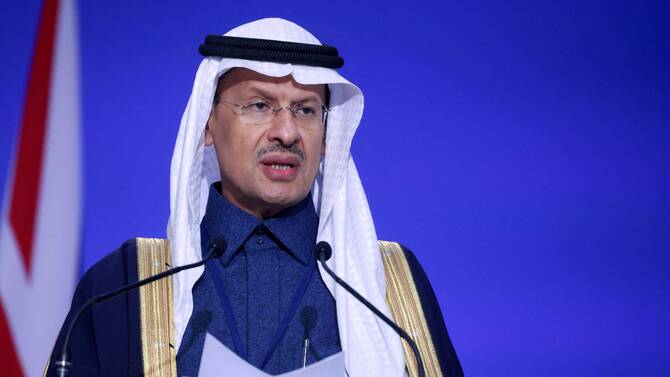SINGAPORE: Henry Kissinger, former US secretary of state who helped brings about an entente between China and the US nearly 50 years ago, told the Bloomberg New Economy Forum that there was a risk that rising trade tension could lead to a situation like that in Europe before the outbreak of the First World War.
“There is a risk of it getting out of control, like in Europe in 1914, so both countries have to realize that conflict between them would destroy hopes for the world order,” he said, adding that he was “optimistic” that a compromise could be achieved between America and China.
“We all know what the world would look like if there was a military conflict between China and the USA, so they need to solve their differences,” he said.
Kissinger, who is co-chairman of the NEF’s advisory board, added: “China has not had to experience ‘balance’ (in international affairs). For most of their history they have been the dominant world power. So the challenge is for China to recognize that there has to be a balance.
“The United States has to learn that not every crisis is caused by ill-will. Both sides will have to learn to adapt.”
He said that there was “probably a group of people in the USA who do not want China to be the biggest economy in the world.”
Since Kissinger helped organize the first ever visit by an American president — Richard Nixon in 1971 — the shape of the global economy has changed completely, he added.
“Now China has become a substantial new player that can compete with the USA, so they are bound to step on others’ toes around the world. The challenge is for the USA and China to maintain a co-operative relationship in the face of this.”
Kissinger ‘optimistic’ that risk of First World War scenario can be avoided
Kissinger ‘optimistic’ that risk of First World War scenario can be avoided

- Kissinger helped achieve China-US entente half a century ago
- Former secretary of state says risk of trade dispute escalation
The Family Office to host global investment summit in Saudi Arabia

RIYADH: The Family Office, one of the Gulf’s leading wealth management firms, will host its exclusive investment summit, “Investing Is a Sea,” from Jan. 29 to 31 on Shura Island along Saudi Arabia’s Red Sea coast.
The event comes as part of the Kingdom’s broader Vision 2030 initiative, reflecting efforts to position Saudi Arabia as a global hub for investment dialogue and strategic economic development.
The summit is designed to offer participants an immersive environment for exploring global investment trends and assessing emerging opportunities and challenges in a rapidly changing financial landscape.
Discussions will cover key themes including shifts in the global economy, the role of private markets in portfolio management, long-term investment strategies, and the transformative impact of artificial intelligence and advanced technologies on investment decision-making and risk management, according to a press release issued on Sunday.
Abdulmohsin Al-Omran, founder and CEO of The Family Office, will deliver the opening remarks, with keynote addresses from Saudi Energy Minister Prince Abdulaziz bin Salman and Prince Turki Al-Faisal, chairman of the King Faisal Center for Research and Islamic Studies.
The press release said the event reflects the firm’s commitment to institutional discipline, selective investment strategies, and long-term planning that anticipates economic cycles.
The summit will bring together prominent international and regional figures, including former UK Treasury Commercial Secretary Lord Jim O’Neill, Mohamed El-Erian, chairman of Gramercy Fund Management, Abdulrahman Al-Rashed, chairman of the editorial board at Al Arabiya, Lebanese Minister of Economy and Trade Dr. Amer Bisat, economist Nouriel Roubini of NYU Stern School of Business, Naim Yazbeck, president of Microsoft Middle East and Africa, John Pagano, CEO of Red Sea Global, Dr. Anne-Marie Imafidon, MBE, co-founder of Stemettes, SRMG CEO Jomana R. Alrashed and other leaders in finance, technology, and investment.
With offices in Bahrain, Dubai, Riyadh, and Kuwait, and through its Zurich-based sister company Petiole Asset Management AG with a presence in New York and Hong Kong, The Family Office has established a reputation for combining institutional rigor with innovative, long-term investment strategies.
The “Investing Is a Sea” summit underscores Saudi Arabia’s growing role as a global center for financial dialogue and strategic investment, reinforcing the Kingdom’s Vision 2030 objective of fostering economic diversification and sustainable development.










